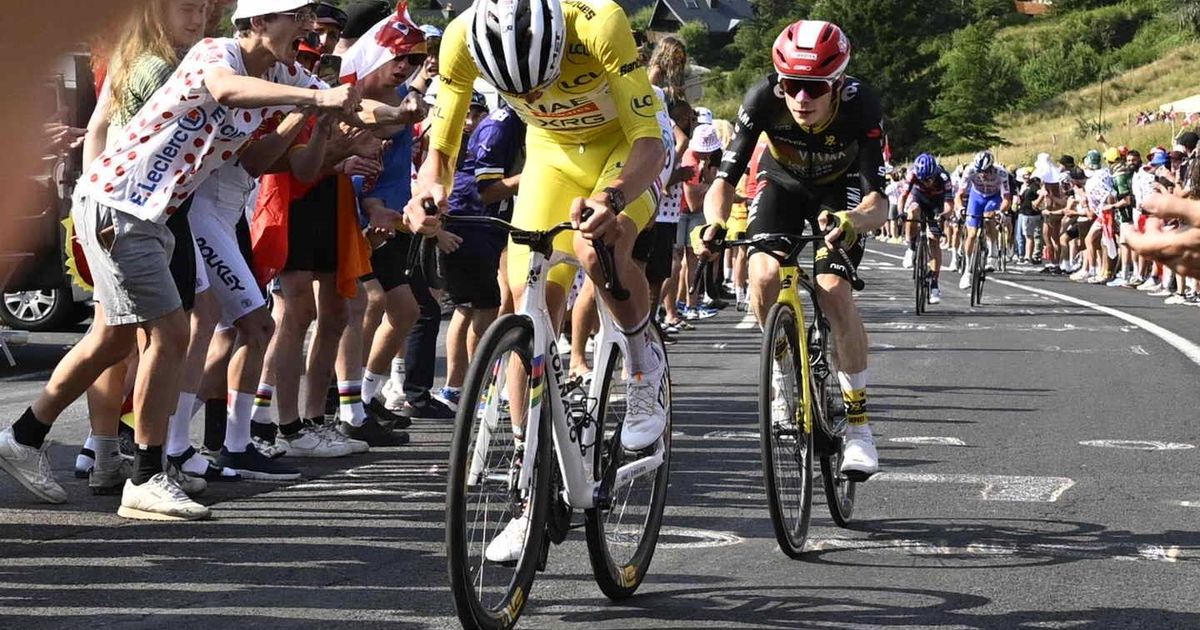A champion chasing ghosts
Both Roll and Van Garderen presented Pogacar as a rider whose ambitions now extend beyond yellow jerseys alone and towards the game’s longest shadows.
Roll captured it bluntly: “Pogacar isn’t just in it for winning the Tour de France. He’s chasing ghosts… He wants to get the stage win victories, break Cavendish’s record. He wants it all.”
Van Garderen agreed the 2026 route offers little comfort to rivals who might hope the terrain would level things up: “Knowing Pogacar, he’s going to attack at any chance he sees… maybe he’s just going to try to stamp his authority on the race early.”
From an early Pyrenean test on stage three to the late double ascent of the Alpe, the pair repeatedly returned to the same theme: when Pogacar senses an opening — or simply decides to create one — he rarely waits.
Roll’s blunt assessment: “Nobody’s beating Pogacar”
Roll swerved qualifiers. Asked whether 2026 could produce a genuine GC fight, he offered a flat verdict: “I’ll just do a hot take real quick. Nobody’s beating Tadej Pogacar in next year’s Tour de France.”
He did concede the opening exchanges — with a punchy team time trial and those early climbs — might keep things fluid at first. But even across a route designed to produce volatility, Roll sees the same conclusion: “It might be closer. It might not be as decisive after the first few days, but this course suits him perfectly.”
The implication is clear: the profile can complicate the journey, but class will likely decide the destination.
Where does the pressure come from — Evenepoel or Vingegaard?
Central to Van Garderen’s viewpoint is not just Pogacar’s strength, but a comparative lack of resistance. Years of Pogacar–Vingegaard duels have yielded iconic racing, yet Van Garderen believes the balance shifted decisively this year: “Last year I was thinking OK, you have to give Jonas a little bit of a break after his crash at the Basque Country. But this year… both came in completely healthy… and Tadej just demolished him.”
Remco Evenepoel, meanwhile, remains the rider most likely to re-shape the contest against the clock — but Van Garderen thinks 22km of individual time trialling won’t be sufficient: “I just watched the World Championships where Remco Evenepoel put about two and a half minutes into Pogacar… If you wanted to have an exciting race and a more legit threat to Pogacar, why not give Remco what we had in the past?”
Roll agreed on principle: “I agree — that’s not nearly enough to give us an idea of who’s the best all-around cyclist.” Both also noted that these days GC riders top modern TTs rather than ceding the top table to specialists, making longer time trials more relevant to the overall fight than they once were.
Even so, Van Garderen suggested Evenepoel’s move to Red Bull BORA adds intrigue, while cautioning that team dynamics will matter: “If they work well together that’s a powerhouse squad… but are they going to play nice?” With Primoz Roglic and Florian Lipowitz in the same line-up, the hierarchy — and how it translates on the road — becomes a storyline of its own.
UAE’s appetite and Pogacar’s targets
Another thread was UAE’s tactical bandwidth on mountain days. Roll wondered if we might again see the team allow breakaways the chance to contest certain summit finishes — a pattern that opened the door for opportunists last July. Van Garderen felt that wasn’t by design and was shaped in part by Joao Almeida’s absence.
“If he’d been there, they’d have steamrolled a lot of those breaks and Pogacar might have won eight stages.” His broader point was that Pogacar cannot do the job of four riders, particularly with Jonas Vingegaard on his wheel, but a fully stocked UAE would try to win as much as possible.
Which loops back to the historic context. Roll: “He’s not just trying to win the Tour — he’s chasing ghosts.” Another yellow jersey would move Pogacar further into all-time company. And even on the final day, Roll suspects the mindset won’t change: “Even if he’s three minutes up at that point, he’ll still try to win that last stage.”
The bottom line
All roads seem to lead back to the same conclusion. The 2026 Tour de France route looks more dynamic and arguably better balanced than last year’s, with a headline double Alpe d’Huez, a modernised stage one, and enough attrition to separate elite from elite. But for Roll and Van Garderen, the decisive factor sits above the profile.
The cast will arrive with plans, depth charts and form lines, and Evenepoel’s move — plus Red Bull BORA’s leadership question — ensures narrative momentum. Yet as two experienced observers see it, the starting point remains the same.
To win the Tour de France, first you have to beat Tadej Pogacar. And right now, that is much easier said than done.

